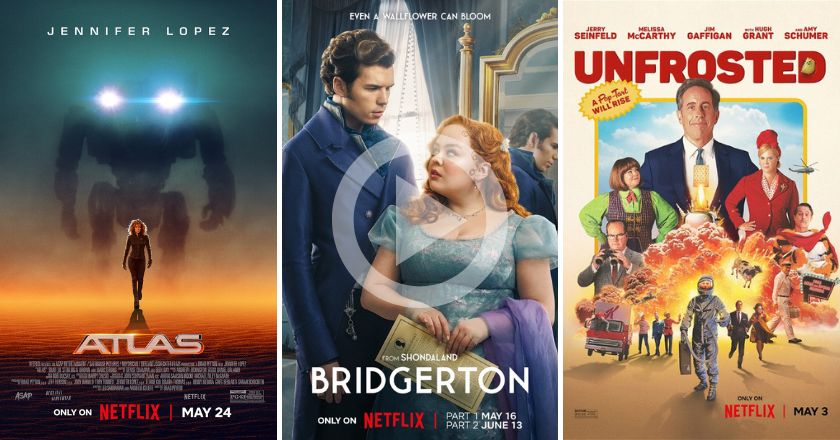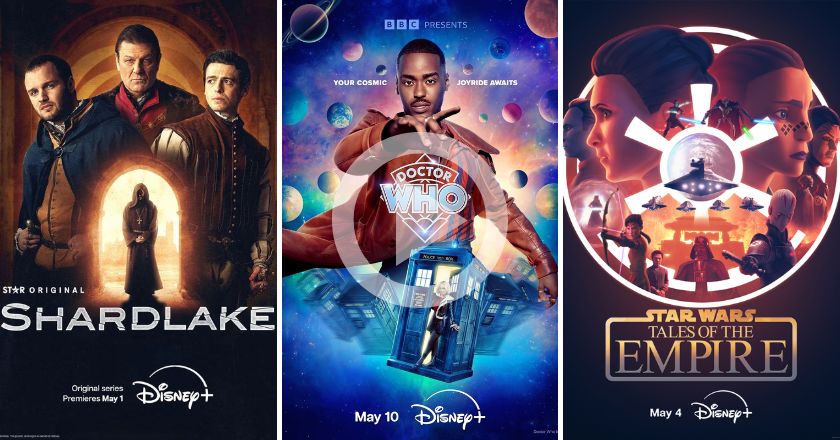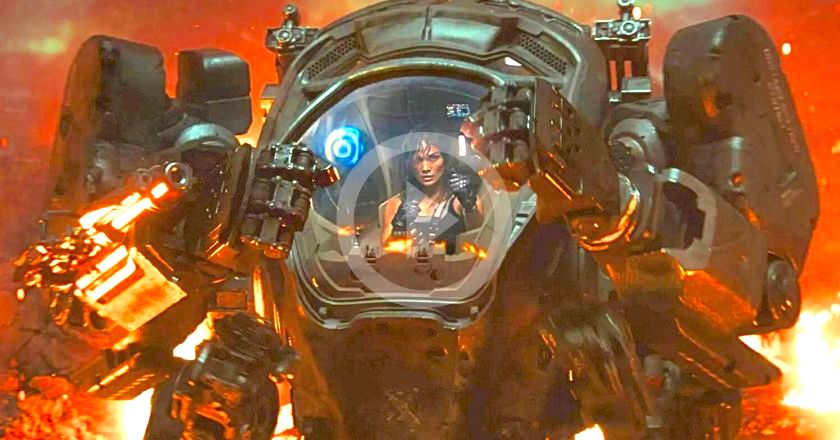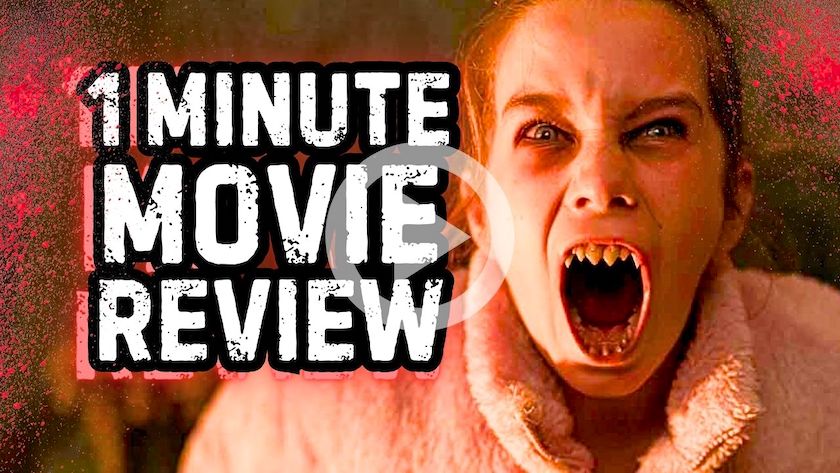[Watch/listen to our review above or read it below]
–
Spider-Man: No Way Home is the type of Hollywood tentpole that arrives to an almost unfair amount of expectations. The Marvel Cinematic Universe has worked wonders in earning itself a massive following, but with great power, comes … you get what I’m saying. And with regards to Now Way Home, with its MCU crossover element, its endless multiverse possibilities, the promise of characters from past Spidey films (talk about branding!), and with a plethora of fan theories many have been taken as fact without confirmation…. hell, this is easily the most anticipated of the Tom Holland-led chapters. No pressure then.Â
Speaking of pressure, I can already feel readers twitching their eyes as they eagerly skim for the answer to the big question: IS IT GOOD OR NOT?!?! Let’s get that out of the way now, shall we? YES, VERY.
We catch up with Peter Parker following the events of Far from Home, which (spoilers if you haven’t seen that chapter) culminated in Mysterio framing Spider-Man for his death and J. Jonah Jameson (J.K. Simmons, reprising his role from the Tobey Maguire Spidey films) revealing Spider-Man’s true identity to the world. Parker’s newfound fame is extremely problematic, particularly since our hero no longer carries the “friendly neighbourhood” tagline in the public eye. The public, the media, everyone knows not only who he is, but where he lives and who he knows, also making life difficult for Aunt May and Parker’s friends, including his now girlfriend, MJ (Zendaya).
With things getting increasingly out of hand, Parker decides to employ the help of one Dr. Stephen Strange (Benedict Cumberbatch), in the hope that Strange can use a bit of his magic to restore his secret identity and get things back to the way they were. Of course, the spell doesn’t go according to plan, leading to a rip in the multiverse that allows for various villains – who we’ve seen take on Spidey in previous films – to cross over into their world. Peter Parker is soon facing Norman Osborn / Green Goblin (Willem Dafoe), Otto Octavius / Doctor Octopus (Alfred Molina), Max Dillon / Electro (Jamie Foxx), Flint Marko / Sandman (Thomas Haden Church), and Curt Connors / Lizard (Rhys Ifans). Parker and Strange agree that getting them back to their worlds is imperative, but there’s a wrinkle that Strange is fine with and Parker isn’t: They will return to whatever their fates are, including death. As Strange puts it: “If they die, they die.”
The multiverse concept has long been a type of ‘Get Out of Jail Free’ card, providing doors for different iterations of characters to exist, avoiding having characters actually die and leave a franchise, and allowing for unlimited narrative options. Smartly, No Way Home manages to use the concept in a number of ways, from the obvious fan service that comes with the nostalgia-heavy return of past characters, to shaking up the world of our current Peter Parker in very real and highly dramatic ways, to serving as further set-up for the MCU’s evolving phase.
Director Jon Watts and screenwriters Chris McKenna and Erik Sommers, all returning after delivering previous Marvel-Sony Spider-Man hits Homecoming and Far from Home, juice the high-concept narrative in impressive fashion. While many characters are juggled and the multiverse of it all mostly makes some degree of fantastical sense, Watts and co. keep in mind that this is still a Spider-Man film – and our hero is wonderfully kept as the focal point while so much happens around him and to him.
Save for, perhaps, Avengers: Endgame, No Way Home proves to be Parker’s most pivotal chapter. The character’s very essence, of always attempting to do the right thing and holding an optimistic attitude, is used as the overall catalyst for the challenges that smack him in this chapter. It’s an approach that’s been used in Spider-Man stories since the character’s conception on the page. Previously partnered up with a father figure of sorts in Tony Stark, this Peter Parker has, generally, been able to rely on some sort of emotional support from family, friends and fellow heroes. While that’s still somewhat the case, No Way Home pushes Holland’s Parker to grow in ways that we haven’t seen before. We’ve seen Holland’s iteration of Parker and the webslinger grow since he made his debut in Captain America: Civil War, and seeing him struck with certain developments here is affecting on a different level. Our Parker is growing up, fast, and it’s not in the easy ways we would have liked for him.
On an emotional level, fans are placed on quite the rollercoaster ride. McKenna and Sommers’ screenplay brings plenty of laughs throughout, continuing to benefit from the oh-so-charming chemistry of our young trio. Having Strange play a pivotal role also makes for a good time, as his gruff demeanour shapes into a sort-of tough dad persona for our hero. But when the drama hits, fans may be caught unawares: it hits hard. From lows to highs, and back again, No Way Home pushes audiences to either emotional direction with ease.
As with previous MCU chapters holding crowded hero line-ups, No Way Home does suffer, ever so slightly, from overcrowding. Bringing back five villains is an ambitious undertaking, and it proves to be a little too much for what the film has in store. Although these villains have already had their moments in the sun, their arcs aren’t quite given equal value in this busy narrative. Lizard and Sandman, in particular, are given little time to make a mark, and often feel underused in the overall proceedings. Having all these characters here is undoubtedly exciting, but there remains a question as to whether or not all were actually needed. Those that were in doubt or unhappy with Jamie Foxx’s rendition of Electro in The Amazing Spider-Man 2, should be happy to find that his Max Dillon is much less pathetically caricatured. Foxx is given the opportunity to lose the overbearing elements and make Dillon a man excited at the possibility of a new beginning.
Willem Dafoe and Alfred Molina embrace their roles as though no time has passed. The renowned thespians capture their characters perfectly, managing to gain audience empathy while driving narrative tension. Dafoe, especially, effortlessly finds that back-and-forth rhythm that made him so memorable back in 2002.
Disney money drives the big-screen visuals fans have become accustomed to, so it feels a little redundant to commend special effects in blockbusters these days. But, it comes down to clarity and creativeness to stand out from the digital overload hitting our screens, and No Way Home delivers on both. Watts and his team expertly infuse the established Spider-Man effects and signature visuals we’ve seen before with some highly creative additions (seeing Parker in Strange’s realm, for example, is a treat). Admittedly, if I were to nitpick a bit, the inundation of CGI doesn’t always nail it; some of those digital faces, for example, can nudge you out of the moment.
Tom Holland continues to prove himself an amazing Spider-Man. As mentioned, Parker is placed on quite the bumpy journey in No Way Home, allowing Holland to grow the character in ways we haven’t seen before. There’s pain here, and yet the charming and endearing Parker we’ve all fallen in love with remains. There are layers of guilt and responsibility (there’s that word) provided to the young man that are key to his path going forward. That, alone, makes No Way Home incredibly important for Spidey fans and, as we’ll no doubt see play out in future, this universe as a whole.
Spider-Man: No Way Home is an epic, hugely entertaining, often surprising, and emotional third film for our webslinger. It serves as not only a great chapter in the MCU, but a fantastic standalone Spider-Man film on its own merits. A must-see event.










